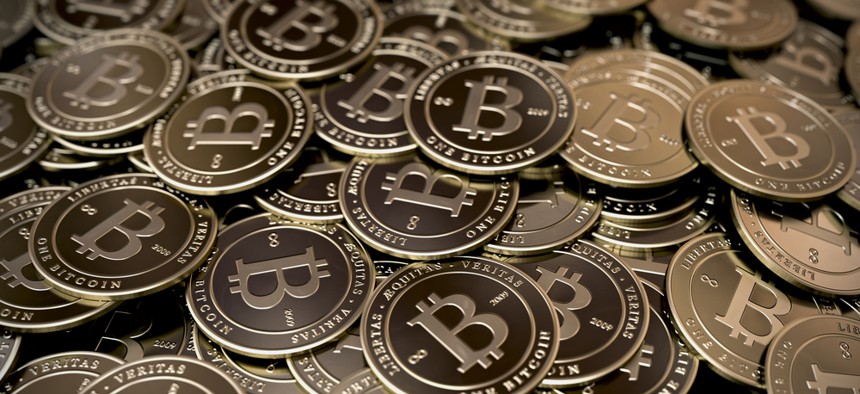
d9000/Shutterstock.com
Feds Charged With Stealing Bitcoin
A former DEA official and a former Secret Service agent are accused of using bitcoin to launder money during an investigation into Silk Road.
The Justice Department announced Monday it is charging two federal agents with using bitcoin to launder money while the pair investigated Silk Road, a now-defunct website where criminals relied on the digital currency to conduct illicit business.
The investigators being charged are Carl Mark Force IV, who worked with the Drug Enforcement Administration, and Shaun Bridges, a former Secret Service agent. Force is being charged with wire fraud, stealing government property, and money-laundering; Bridges is accused of of wire fraud and money-laundering.
Force and Bridges are described in a criminal complaint as abusing their positions as federal agents to "engage in a scheme to defraud a variety of third parties, the public, and the government, all for their own financial enrichment."
Force, according to the Justice Department's investigation, was an undercover agent who communicated online with Ross Ulbricht, the founder of Silk Road and a target of a separate investigation. But while on the job, Force developed a number of separate online identities in order to engage in "complex bitcoin transactions to steal from the government and the targets of the investigation," the complaint alleges.
Bridges is charged with diverting more than $800,000 in digital currency to a personal account—funds he acquired as a result of the Silk Road investigation. Bridges put that money in an account at Mt. Gox, a separate Japan-based exchange for digital currencies that is also now defunct. Bridges is alleged to have wired funds to a personal investment account just days before he sought a $2.1 million seizure warrant for accounts at Mt. Gox.
Ulbricht, the Silk Road operator, was convicted last month in federal court on seven counts, including trafficking drugs on the Internet and running a criminal enterprise. His sentencing is expected in May.
Silk Road was a popular underground website where bitcoin was often used as a currency in order to evade detection. The site, which launched in February 2011 and was shut down by the FBI in October 2013, at times trafficked more than $1 million a day. It has been described by authorities as "a sprawling and anonymous black-market bazaar where illegal drugs of virtually every variety were bought and sold regularly by the site's users."
Law-enforcement officials for years have warned that bitcoin and other cryptocurrencies can be easily exploited by criminals and drug traffickers, given the anonymous nature of the technology.
The use of bitcoin to launder money by two federal agents tasked with investigating criminals for that very same practice would appear to vindicate the Justice Department's wary stance toward the cryptocurrency. But bitcoin evangelists insist that the decentralized payment method is good for consumers, because they can avoid transfer fees and don't need to rely on banks.
Regulators continue to grapple with how to approach the nascent market of cryptocurrencies. Sen. Joe Manchin called for a blanket ban on bitcoin a little over a year ago, on grounds that the virtual currency "has allowed users to participate in illicit activity, while also being highly unstable and disruptive to our economy."
(Image via d9000/Shutterstock.com)







